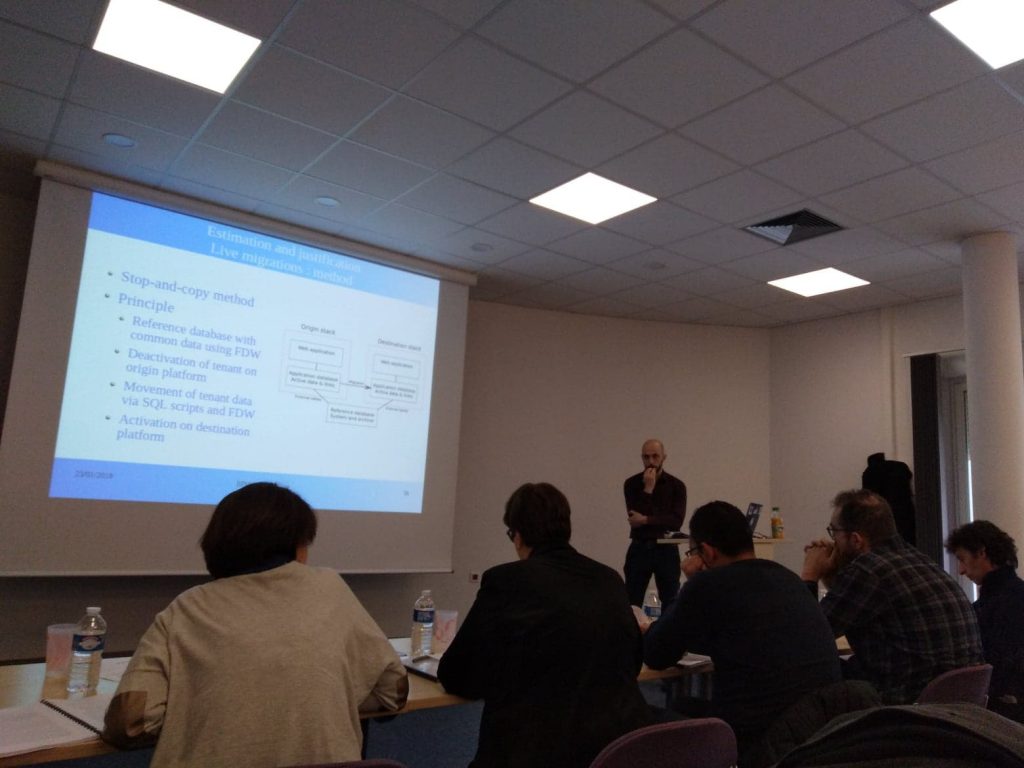PhD defense of Guillaume Rosinosky – Elasticity and BPMaaS – 23-1-2019

Wednesday, January 23 2019 at 14:00 in room A008 in the LORIA.
The jury is composed of :
Reporters:
Walid Gaaloul – full professor at Telecom Sud Paris
Salima Benbernou – full professor at Université Paris Descartes (absent)
Examiners:
Malika Smail – associate professor at Université de Lorraine, LORIA
Parisa Ghodous – full professor at Université Lyon I, LIRIS
Invited:
Duy Tran Quang – manager at Bonitasoft
Supervisors:
François Charoy – full professor at Université de Lorraine, LORIA
Samir Youcef – associate professor at Université de Lorraine, LORIA
Abstract:
The availability of middleware platforms in the cloud, with “transparent” scalability, is a progress for software developers and integrators. They can develop and deploy their applications without worrying about technical details.
However, the exploitation cost of a cloud infrastructure can quickly become important. Providers requires methods to reduce this cost by adapting the size of ressources to the needs of the customers. In this thesis, we focus on multi-tenant transactional web applications, more precisely on business processes execution engines. We propose methods allowing to optimize the operational costs of providers of business process execution “as a Service” (BPMaaS) while ensuring a sufficient level of quality of service. This type of application do not scale well because of its persistence tier and of the transactional nature of operations. One must distribute the customers installations in order to optimize the cost, and sometimes move them depending of the needs of the customers.
These moves (or migrations) have an impact on the quality of service and they must be limited. First, we propose a method for measuring the size of resources in terms of BPM tasks throughput, and then a method for measuring the impact of migrations we evaluate, thus confirming our hypothesis. We also propose several linear optimization models and heuristics targeting resouce allocation and distribution of customers, while limiting the number of migrations. These models are based on the knowledge of the needs of customers per time slot. We have experimented our three methods on the BPM solution Bonita, and demonstrated that they provide substantial savings on the infrastructure exploitation compared to a basic method.


